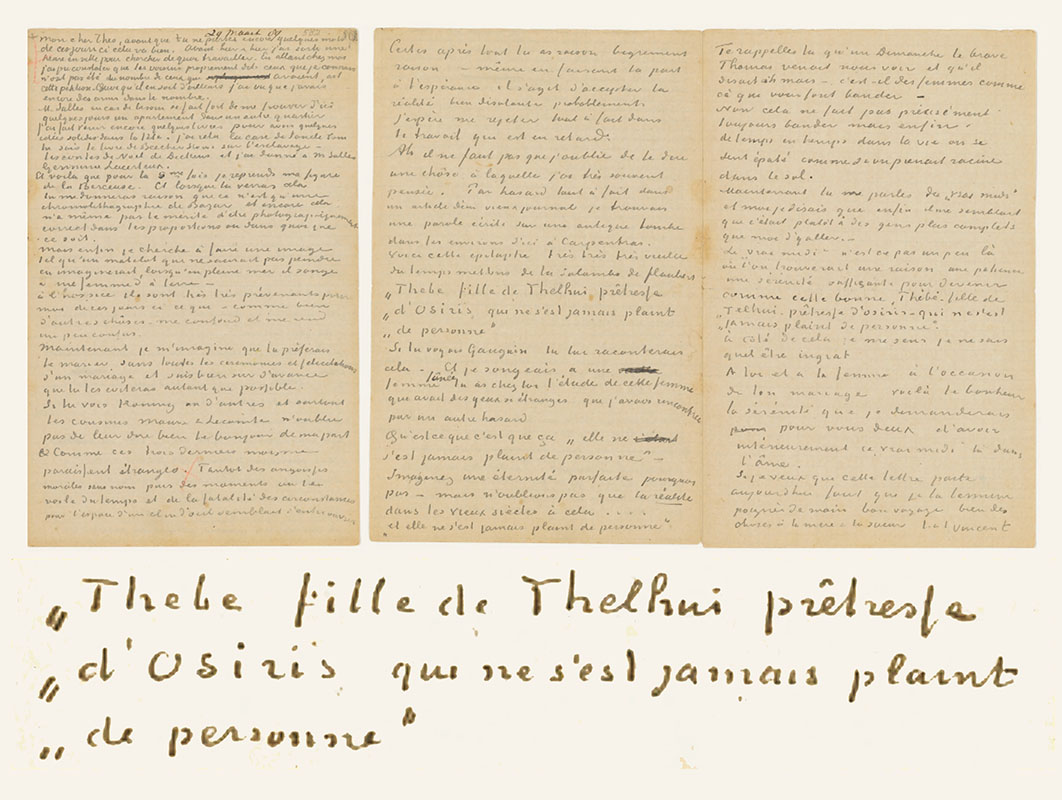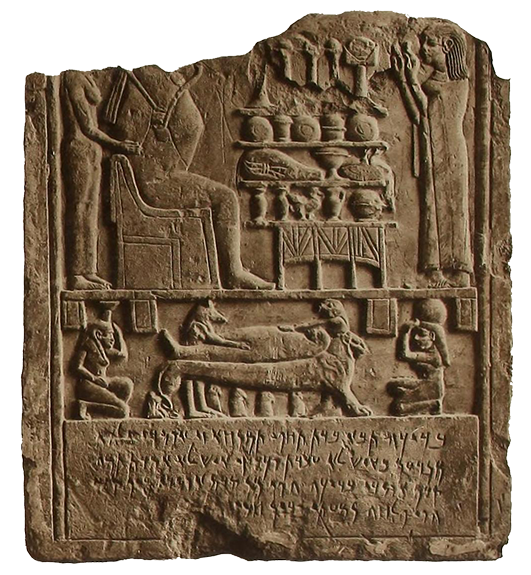Taba Who Never Complained of Anyone
Vincent van Gogh, in a letter to his brother Theo back when he was in Arles, dropped a very interesting phrase — or rather, a quote — that stuck with me a long time ago. Initially, when I saw it, I didn’t know where it came from. Now I do — and I’m going to tell you the story.
In 1704, in Memphis, Egypt, they found an ancient Egyptian funerary stele. Not from the oldest period of Egypt, but nevertheless — it’s from the Ptolemaic era. (That’s when Alexander the Great conquered Egypt, really liked it there, even built a city — Alexandria — and then one of his generals, Ptolemy, stayed on to rule. That’s how the Ptolemaic dynasty began, which ended with Cleopatra.) Later, the stele was moved to France, to a town called Carpentras. How it got there — nobody really knows. Probably got snatched from Egypt at some point and shipped to France.
What makes it interesting is that it has inscriptions in three languages: Egyptian hieroglyphs, Aramaic, and Greek. But back then, no one could read the hieroglyphs — the stone was partly damaged, the hieroglyphic portion of the text was fragmentary, and most importantly — Champollion hadn’t yet enlightened us with his insights. It would be a hundred years before he figured out that hieroglyphs weren’t just symbolic, but also had phonetic elements. That breakthrough came only after the discovery of the Rosetta Stone. Jean-François Champollion cracked the code in 1822, thanks to that stone, which had been found back in 1799 during Napoleon’s campaign in Egypt.
So, when the stele eventually made its way to Carpentras, a local newspaper wrote about it — and that’s where our Vincent van Gogh came across it. People couldn’t read the hieroglyphs yet, but the Greek and Aramaic parts they could handle. So the article described the inscription, and among other things it said: "Here lies Taba, daughter of Tahapi, priestess of Osiris, who never complained about anything."
Van Gogh was deeply struck by that line. In fact, he mentions it in several letters to both his brother and his sister. And really — it’s not so easy to live a life, even a leisurely one, like someone from the privileged class, without ever complaining about anyone. When I first came across this phrase, I had no idea it came from Van Gogh’s letters — just the phrase itself, about this woman named Phoebe (that’s how I heard it first, and that’s how I wrote it down; now they say it should sound like Taba) — who never complained about anyone or anything.
Van Gogh asks his brother to tell Gauguin about her, and says that when he compares himself to this Taba (he calls her Thebe), he feels ungrateful. That real happiness lies in serenity — and when you have that, you may have this “real South” within your soul.
So yeah — may we all have a bit of that real South in our souls.




